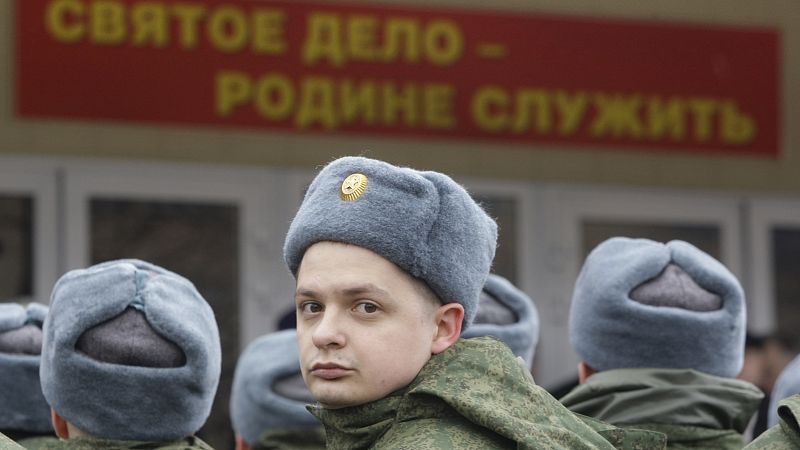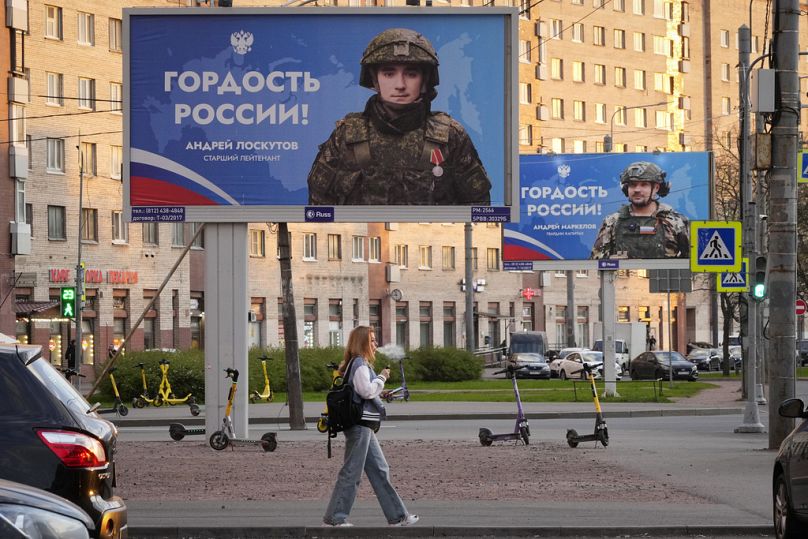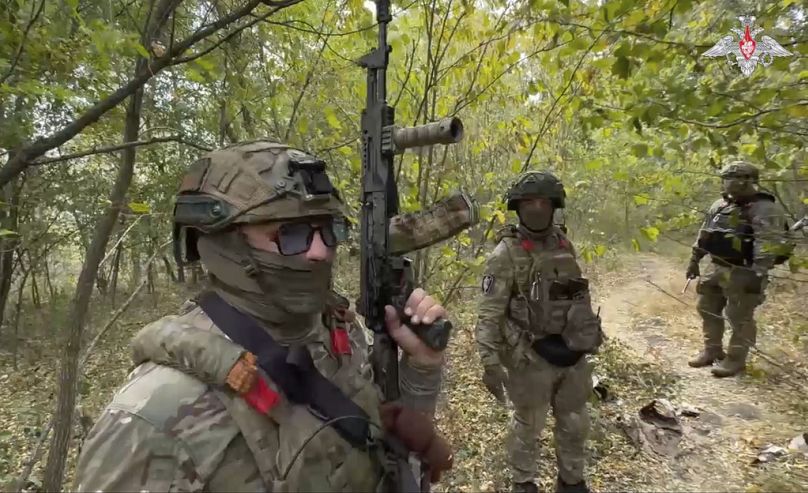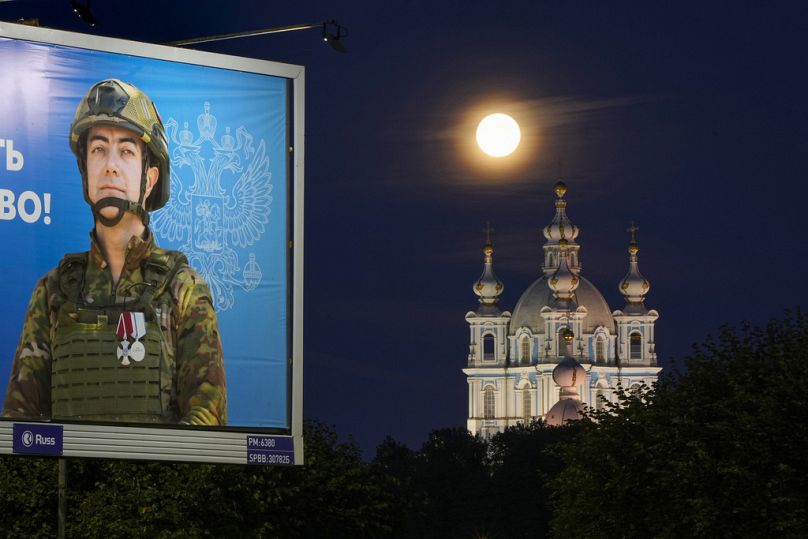Russia's autumn conscription: How many of the 133,000 draftees will end up in Ukraine?

Some 133,000 people are about to be called up for military service in Russia as part of a traditional autumn conscription campaign, where all men aged between 18 and 30 who are not reservists and are subject to military service have to be called in for a 12-month period.
This autumn call-up, which started Tuesday and runs until 31 December, is the second routine conscription campaign since the maximum age was raised from 27 to 30.
New conscripts undergo one to two months of basic training, followed by three to six months of advanced training before arriving at their assigned units.
Current law states that conscripts cannot be deployed to combat with less than four months of training and cannot be deployed outside of Russia — therefore, to the war in Ukraine.
Yet, many of them are.
How do Russian conscripts end up in Ukraine?
Conscripts cannot legally be deployed to fight outside Russia, but very often, they end up on the other side of the border by way of signing up for professional army post-conscription.
The Russian NGO “Get Lost” supports people trying to avoid conscription, which often results in signing a contract, even unwillingly.
Ivan Chuvilyaev said that conscripts are increasingly being forced to sign contacts with the Russian military. "An enlisted soldier finds himself in a very difficult situation. In fact, he has no options not to be on a contract," Chuvilyaev told Euronews.
He explained that at first, soldiers are persuaded to do so with arguments like "everyone has signed, but you haven't yet, and everyone has received money, but you haven't."
If this doesn't work, they are promised things, such as "If you sign, we will send you to serve in a safe region somewhere in the Urals or Siberia or close to home (and) if you don't sign, you will go to a zone where conscripts can be sent by law."
But even without a contract, conscripts can be sent to illegally annexed Crimea or Russian regions of Belgorod, Kursk and Bryansk — which Chuvilyaev said are not any safer than temporarily occupied territories in Ukrainian regions of Luhansk, Donetsk, Kherson and Zaporizhzhia, where fierce fighting continues on the ground.
"Finally, the main thing is that the practice of falsifying documents is very widely used. The contract is signed for the conscript (by recruiters who) put an 'x' in the signature box. The soldier finds out about it when he receives a bank card and documents about allowance," Chuvilyaev explained.
Russian Defence Minister Andrei Belousov stated on Monday that the Russian MoD is not currently considering another wave of general mobilisation and is instead focused on having Russian servicemembers sign military contracts.
There is also forced mobilisation in Ukraine
Last year, Russia's autumn conscription included residents of the occupied territories of Ukraine.
Ukrainian military's National Resistance Centre reported in September 2023 that the so-called "federal commissariats" were created in occupied parts of Kherson and Zaporizhzhia regions.
Furthermore, Moscow-installed occupation administrations regularly posted announcements on Telegram channels, calling on the local population eligible for the military service to provide personal data and copies of IDs for "temporary registration" and subsequent conscription.
Euronews contacted the Ukrainian military's National Resistance Centre for comment regarding this year's conscription campaign in temporarily occupied territories of Ukraine but received no answer at the time of publication.
Kursk conscripts valuable assets
When Kyiv launched its surprise incursion into the Kursk region of Russia in early August, hundreds of Russian conscripts were taken POW.
Ukrainian authorities said capturing them on Russian territory helped "replenish the exchange fund", meaning that these prisoners could be then swapped for Ukrainian soldiers held in Russian captivity.
That is exactly what happened on September 14 when Ukraine and Russia exchanged 103 POWs.
For the Kremlin, the young Russian soldiers are particularly valuable, given that in exchange, Moscow let go of 15 defenders of Mariupol and Azovstal, who spent over two years in Russian captivity.
Moscow is very reluctant to swap Azovstal and Mariupol defenders, especially those from the Azov regiment. They have been absent at most of the POW exchanges.
How many people does Moscow need?
Russian President Vladimir Putin has so far avoided declaring another partial mobilisation call-up of reservists since his decision to mobilise 300,000 troops in late September 2022 in response to successful Ukrainian counteroffensive operations.
The US-based think tank Institute for the Study of War (ISW) said Russia appears to lack the necessary manpower to simultaneously sustain the scale and tempo of offensive operations in Ukraine and defensive efforts in Russian border regions.
UK defence ministry has quoted Russian officials, who said in 2023 that the MoD was recruiting individuals at a rate of 1,600 daily. However, publicly cited figures this year put the rate at around 1,000 a day, which brings the number to 30,000 every month.
"These figures are themselves probably inflated to an extent, but they do demonstrate that the tactics based on mass infantry waves has required Russia to continuously replenish frontlines forces," UK MoD's intelligence update said.
Russian military bloggers claimed in late August that the Russian government continues to rely on the remnants of regular military forces, mobilised personnel, and deceived short-term volunteers to continue Russian offensive operations in Ukraine.
How much does it cost?
The Russian government submitted a bill on the federal budget for 2025 to 2027 to the State Duma on Monday.
According to it, the Russian government plans to spend €165 billion (17 trillion rubles) on national security and defence in 2025 — or about 41% of its annual expenditures.
The budget notably allocates €136 million annually from 2025 to 2027 to create a mobilisation reserve in the Russian armed forces.
The bill also calls for about €388 million in 2025 to fund the "Defenders of the Fatherland Fund," which supports Russian veterans and their families.
Today




